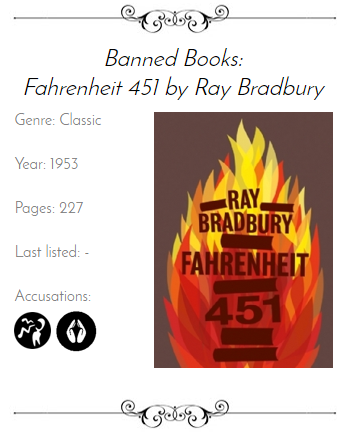Content that is considered "not advertiser-friendly" includes, but is not limited to:
"Controversial or sensitive subjects and events, including subjects related to war, political conflicts, natural disasters and tragedies, even if graphic imagery is not shown"At first glance, this doesn't suggest censorship since the channels aren't forbidden. They just stop receiving money for their work. But in a way, that's the same. Imagine authors who write critical books don't receive any kind of 'salary' anymore for their work. They'd stop. I wouldn't have anything left to watch if these channels go bankrupt.
What I like to watch:
- Human and social rights issues
- Political satire and news programs
- Movies about psychology (Anesthesia, Perks of Being a Wallflower, Perfect Sisters) and talks about movies.
The beauty of the internet is its ability to stream information freely all over the world. No matter what the government thinks or the big media has time or money for, everyone can have a voice. Fahrenheit 451 celebrates our freedom of speech. Our freedom to read. We are responsible for this freedom and should protect it, maybe at all costs even.
Interesting videos on Youtube's policy: Comicbookgirl19 & The Young Turks Explain #YoutubeIsOverParty
Justification: Not granted
Anthem: Creep by Radiohead
Rating: ***3/4
Risk: X
Review: As a novel, this really wasn't my cup of tea. I like for books to stretch over long periods, Fahrenheit 451 plays within a time span of little more than a few described days. The plot must have been groundbreaking at the time, but after enough escape-from-the-oppressive-city stories to know the do's and don'ts and write a handy step-by-step guideline, it didn't do much for me. The characters are generic. The world building is really fucking interesting, but there's an awful info dump somewhere in Act 1 that's like a thorn in my side. All this, combined with a hectic week, didn't make for the best reading experience.
As an idea, though, I loved it. Similar to Lord of the Flies, the author's fears and belief shine through the paper like lemon juice before a candle. What really fascinated me was the similarities between Bradbury's fears and our reality.
Whether it concerns suicide, the uneducational nature of reality TV, or the way we deal with marriage and childbirth. Luckily, Ray Bradbury was wrong about one thing: we have not, and will not, stop reading.
Offensive language
This book has obviously been challenged by the religious community, primarily or all Christians. The most-used curse word in Fahrenheit 451 is 'damn'. By the general public, this is considered a mild swear. (Three worst ones are f*ck, motherf*cker, and c**t.) As a language freak, I'm intrigued by swear words more than anything. I wasn't much of a fan of the ones in this book, because they felt a little forced and unnatural, but I don't see how it could be a reason for a challenge.
Religious viewpoint
In the book, when a character is asked whether he would like the New Testament, he says,
"I'd give my right hand for it."That's like, a huge display of acknowledgment of the value of the Bible, even as no more than an interesting book. This would plead for a more positive predisposition towards Bradbury's novel in the religious community. Also, given that the Bible made spot number 6 on 2015's banned books list and bearing in mind its long history of censorship, I think Christians should celebrate a story encouraging religious freedom as well as freedom of speech.

No comments:
Post a Comment